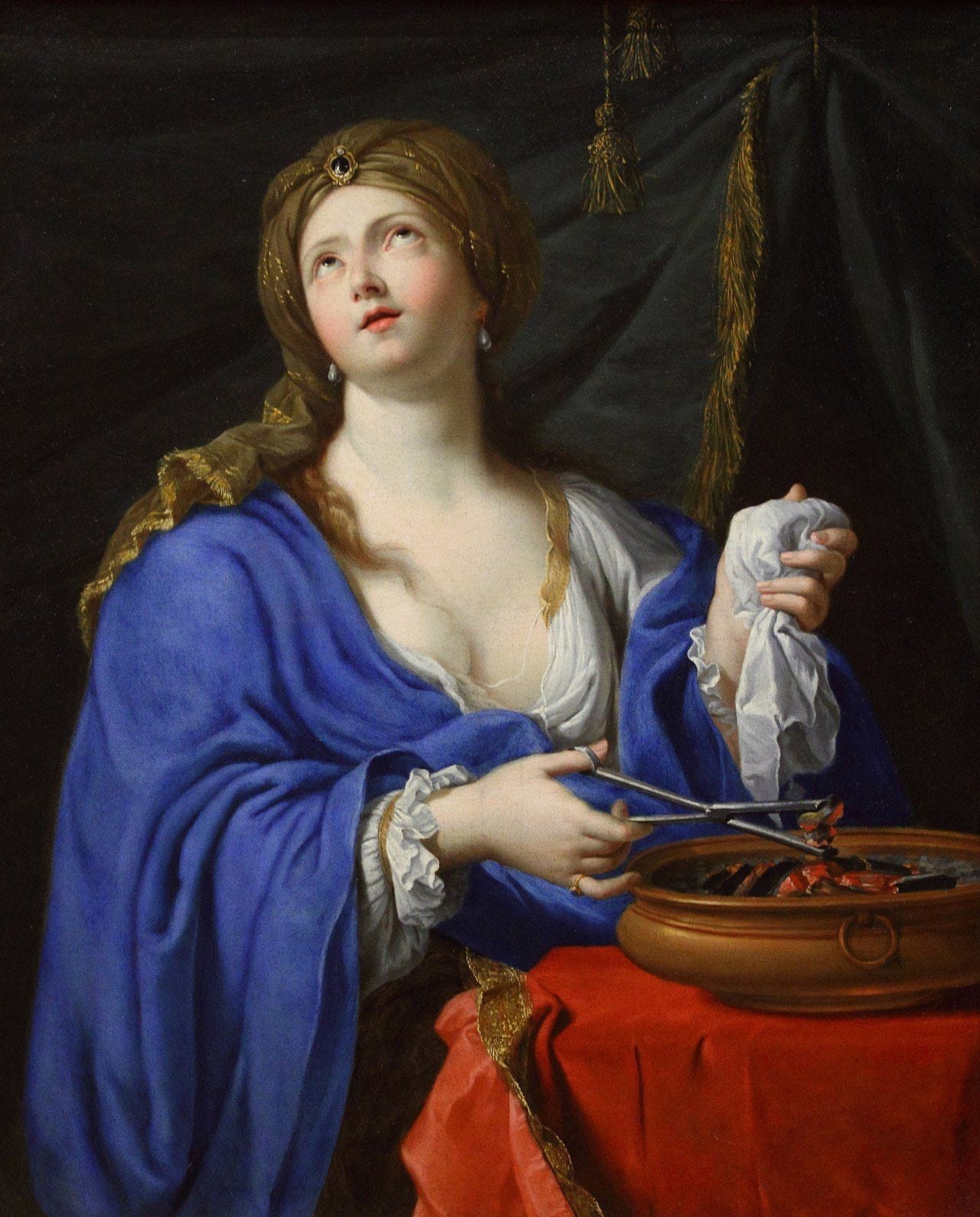This Ancient Roman Woman Is A Role Models For All
Sacrifice and courage in Rome
Welcome to The Stoa Letter, the newsletter on Stoic theory and practice.
Every week we share two emails to help you build resilience and virtue with ancient philosophy. Each email includes one meditation on Stoic theory, one action to do in order to become more Stoic, and links to the best resources we’ve found.
🏛️ Theory
Porcia Cato rivaled her father’s integrity and dare.
Her father, Cato the Younger, was a principled Stoic and mortal enemy of Julius Caesar. In 49 BC Julius Caesar crossed the Rubicon and marched his soldiers on Rome. Years later, he declared himself “dictator for life.”
This pitted him against Porcia’s entire family, men and women who yearned for the freedom of the Roman Republic.
One day, Porcia sensed that her husband, Brutus, was planning something secret.
It wasn’t rare to be subject to torture in those days. Knowing this, Porcia planned to show that she was capable of withstanding pain.
So, she took a knife to her thigh. Porcia’s preemptive act proved to Brutus that he could trust her. This drastic measure was made necessary by the social climate – one where women were not often trusted with the affairs of men.
In response to his wife’s act, Brutus could only share his plans. He intended to assassinate Caesar. He saw Caesar as nothing more than a petty tyrant, the destroyer of Rome.
The ancient Stoics looked back on Brutus and other Romans who sought to restore the Republic as figures who fought for justice, even if imperfectly. This was a fight that Porcia, given her resolve, deserved to be a part of and aid. So, she did. She kept his secret and offered unwavering support.
After Julius Caesar’s death, Rome was plunged back into civil war. Brutus faced off against Mark Antony and Octavian, soon to be Augustus, the emperor of Rome. Needless to say, Brutus lost.
Like her father, Cato the Younger, Porcia was a principled player on the losing side.

The suicide of Porcia, Pierre Mignard.
Plutarch records that Porcia ended her days like her father in noble suicide.
Porcia showed her principles through action. She didn’t communicate through cheap talk. When she said something, anything, we must imagine her following through with action. This is someone who stabbed herself to prove her worth! By all accounts, this was not surprising behavior. Porcia applied the maxim: who you are is what you do.
Through her trials and persistence, she demonstrated courage greater than what many of her fellow Romans thought possible. By doing so, she challenges us to be better and reminds us that Stoicism is available to all.
🎯 Action
Think of one virtuous act today. Do it. Use Porcia’s example as inspiration.
🔗 Links
📰 5 life lessons from Cato the Younger.
🏛️ Our newest series in the Stoa app covers the lives of Stoic models, like Marcus Aurelius, Socrates, and Porcia Cato. Meditate on their example for inspiration and ideas for living well.

As always if you truly cannot afford our app, reach out to us and we’ll provide you with a free account.
💬 The Stoic emperor, Marcus Aurelius, says the following about Brutus:
[He] grasped the idea of a state based on equality before the law, which is administered according to the principles of equality and freedom of speech, and of a monarchy which values above all the liberty of its subjects.
Marcus Aurelius, Meditations 1.14
What did you think about today's letter?
🏆️ Share The Stoa Letter
If you find what we’re doing useful, please share it. Just have people sign up with your link below.
Share The Stoa Letter
{{rp_personalized_text}}
Or copy and paste this link to others: {{rp_refer_url_no_params}}
Get hundreds of Stoic meditations and lessons with the Stoa app (free download)

